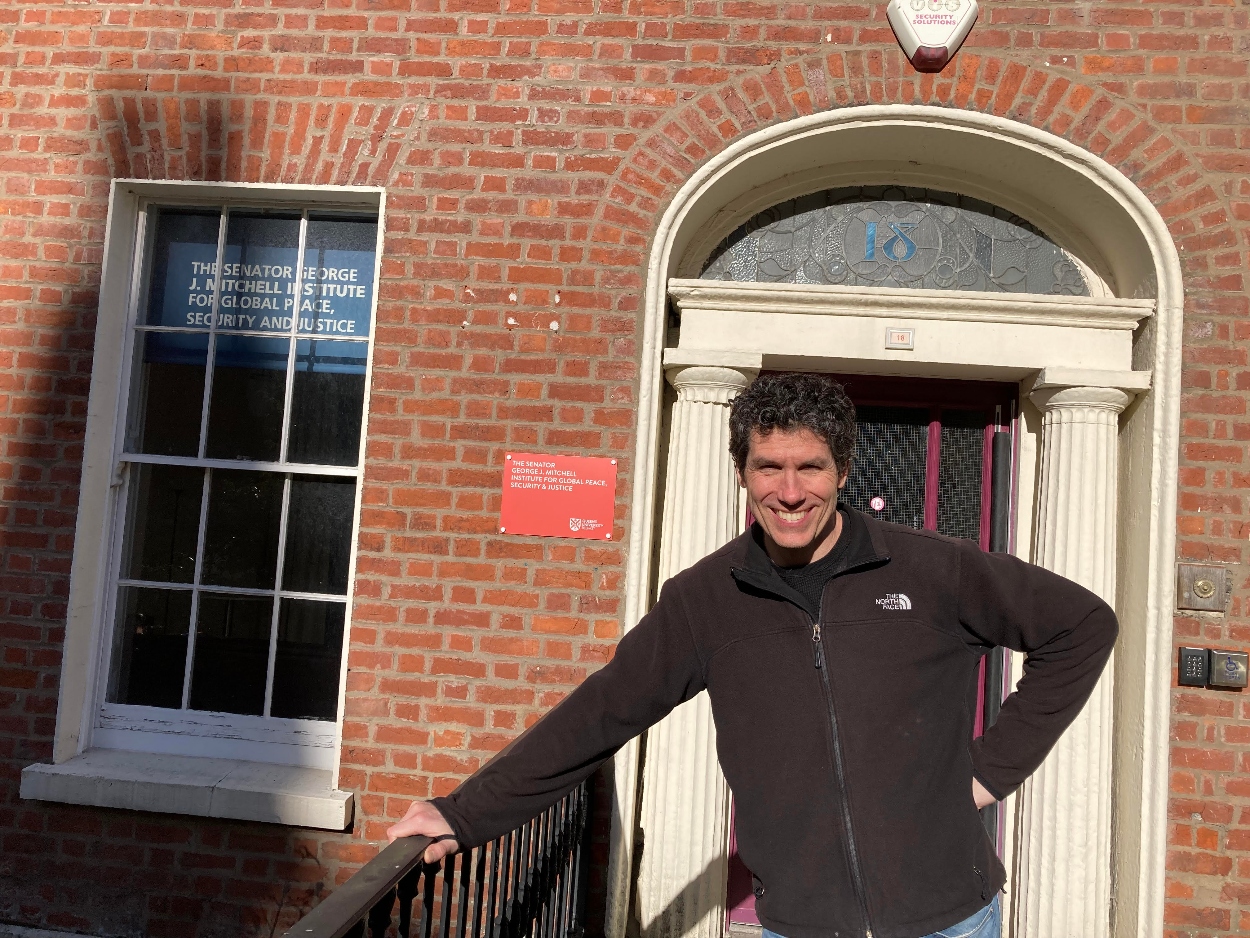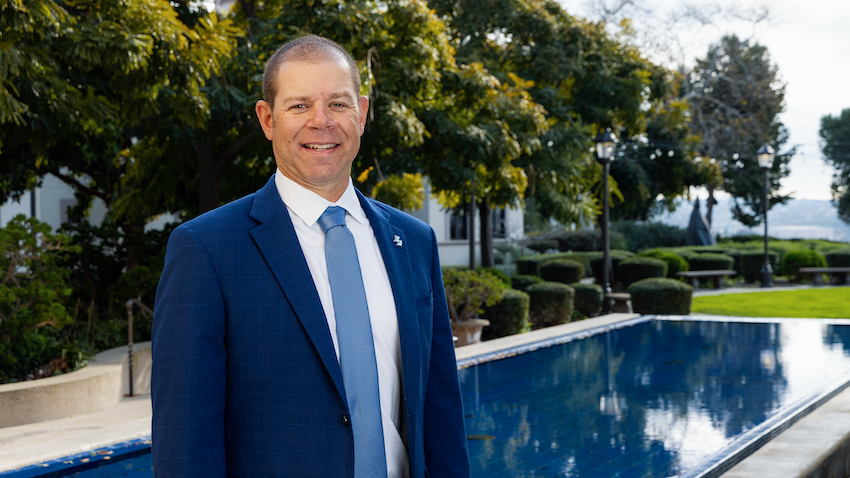USD's Trans-Border Institute Releases Study on Public Security in Juarez, Mexico
Presentation to discuss The Justice in Mexico Project’s Findings
On Tuesday, October 18, 2011 at the Institute for Peace & Justice, Room H, from 3 p.m. - 5 p.m.
TBI’s Director David Shirk and Octavio Rodriguez will discuss the “Justiciabarometro Ciudad Juarez” study which analyzed the state of the municipal police force – including its structure, organization, and community relationships – through the experiences and views of its own members.
The study was developed in collaboration with the Colegio de Chihuahua, the Colegio de la Frontera Norte, and the Comision Nacional Para Prevenir y Erradicar la Violencia Contra Las Mujeres de la Secretaria de Gobernacion. The survey builds on the findings of a similar study conducted one year earlier in Guadalajara, and was implemented for the Justice in Mexico Project by the polling firm Data Opinion Publica y Mercados (DATA-OPM). Along with the Guadalajara survey, this study of the Ciudad Juarez police department, conducted in represents one of the largest independent studies of a police force ever published in Mexico. Focusing on the border city of Ciudad Juarez, adjacent to El Paso, Texas, this study focuses on one of the country’s most important industrial cities and, at the time the survey was implemented, the most violent municipality in Mexico. This study surveyed 75% of the 3,146 municipal police officers serving the roughly 1.3 million inhabitants of Ciudad Juarez. This survey was conducted in June 2010, during the worst year of violence since rival organized crime groups began fighting for control of drug trafficking routes through this major trade corridor. In October 2010, a new mayoral administration took office, introducing new measures to improve the local police department. This study therefore provides a snapshot of the department as the new administration took over, and a useful baseline for evaluating what progress has been made over the last year.
Among the key findings of the survey were severe deficiencies in training and equipment, a lack of merit-based hiring criteria and civil service protections, high levels of distrust among law enforcement personnel, and severe problems of coordination with state and federal law enforcement agencies. Over half the force indicated that they do not have the equipment that they need to do their job, including adequate police uniforms, and half said that the condition of available equipment was bad (33%) or very bad (17%). Respondents demonstrated a basic knowledge of proper law enforcement protocols, but also expressed a strong demand (47%) for more training. 85% said that they have no opportunity to practice the proper use of a firearm on a regular basis, 55% indicated that they do not receive any breaks during their shift, and a significant portion (47%) indicated that they do not have adequate time to exercise during their shift.
Among various questions on law enforcement integrity, 60% of respondents indicated that honesty is the most important virtue of a police officer, but only 40% believed that it was the virtue most present on the force. Notably, on a scale of 0 to 4, roughly 65% indicated that the the level of corruption was at 2 or higher and 36% of respondents felt that the level was above 3. In terms of where corruption is located, 44% of respondents indicated that it was found at the highest levels, 29% indicated that corruption was found at all levels, and the remainder indicated corruption was found only in at lower or middle management levels.
Such problems reflect systemic problems common in police departments in Mexico (as evidenced by the aforementioned survey in Guadalajara), and will no doubt take considerable time to redress. In the meantime, monitoring by the Justice in Mexico Project suggests that the security situation has improved moderately in Ciudad Juarez, with at least a 30% decline in homicides in 2011 compared to 2010. Many credit Ciudad Juarez’s newly appointed police chief, Julian Leyzaola, for achieving a dramatic drop in drug violence. As chief of Tijuana’s police department during 2007-2010, Leyzaola presided over a dramatic decline in drug related violence during his tenure in office, an achievement that many hope will now be replicated in Ciudad Juarez. This survey helps to measure many of the challenges the department faces, and sets a baseline for evaluating reform efforts over the coming years.
The Justiciabarometro is a series of studies produced by the Justice in Mexico Project at the University of San Diego’s Trans-Border Institute, which provides policy analysis and recommendations concerning the rule of law in Mexico. This survey was supported by the generous underwriting of the Open Society Institute, The Tinker Foundation, and The William and Flora Hewlett Foundation. The study was coordinated by Dr. Marcos Pablo Moloeznik, Dr. David Shirk, and Dr. Maria Eugenia Suarez, along with over a dozen law enforcement and security specialists from Mexico and the United States. Final copies of the report are currently being printed, but an uncorrected proof is currently available on the link below. For more information or press inquiries please contact the Trans-Border Institute at (619) 260-4148 or transborder@sandiego.edu.
About the University of San Diego
Strengthened by the Catholic intellectual tradition, we confront humanity’s challenges by fostering peace, working for justice and leading with love. With more than 8,000 students from 75 countries and 44 states, USD is the youngest independent institution on the U.S. News & World Report list of top 100 universities in the United States. USD’s eight academic divisions include the College of Arts and Sciences, the Knauss School of Business, the Shiley-Marcos School of Engineering, the School of Law, the School of Leadership and Education Sciences, the Hahn School of Nursing and Health Science, the Joan B. Kroc School of Peace Studies, and the Division of Professional and Continuing Education. In 2021, USD was named a “Laudato Si’ University” by the Vatican with a seven-year commitment to address humanity’s urgent challenges by working together to take care of our common home.



